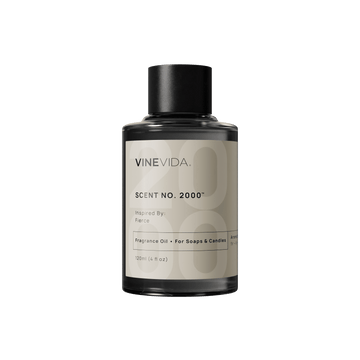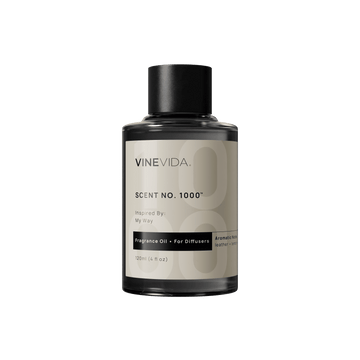According to an ancient compendium of Sanskrit hymns, the Rig Veda vetiver has brought peace and tranquility for over 5000 years. Rich in sesquiterpenes, it is deeply relaxing, reassuring, and aphrodisiac. It focuses on the mind, quietening it and making it conducive to prayer. A rich, heavy base note, it is a sublime fixative for perfumes, lending a strong, masculine dimension to blends.
Where Does Vetiver Essential Oil Come From
Made from the roots of important grass that grows across India, Asia, and subtropical climates. Some of the most excellent vetivers come from Haiti, and many large companies are involved in a fair trade agreement to help the economy of Haiti through excellent production protocols for vetiver essential oil.
The roots of vetiver have an unusual growth pattern. Rather than spreading outward across the soil, they plunge vertically into the ground. The grass can measure 5 feet tall, but its roots will travel as far as 10 feet down. This is an important trait that secures soil fast and is used in many places to prevent soil erosion.
In countries like Bali, vetiver is grown along shorelines to prevent construction waste from falling into the ocean and destroying the coral reefs. In addition, vetiver cleans soil, drawing out heavy metals and even nuclear waste from the soil through phytoremediation. One of the mentions in the Rig Veda is the recommendation to place the roots into wells that have become stagnant to clean up the water. It seems incredible that this has been known for almost five millennia.
Also Read: How To Use Vetiver Oil
What Does Vetiver Essential Oil Smell Like
There is a meme that tickles me of a skeleton wearing glasses, trying to get some vetiver out of a bottle, and yes, that just about sums up how long it takes. It comprises predominantly large, heavy molecules, squeezing and oozing itself through the dropper. It looks like a dark treacle and smells just as good.
It is sweet and earthy, redolent of wooded meadows and marshlands. It has a kind of almost burnt, balsamic nature to it.
There is something very masculine about vetiver’s fragrance, with a powerful aroma that almost always smells better in a blend than as a single note. Vetiver essential oil blends well with Benzoin, Cedarwood, Lemon Balm, Nutmeg, Spikenard, Valerian, Sandalwood, Rose, Jasmine, Violet, Patchouli, Oakmoss, Lavender, Clary Sage, Mimosa, Cassia, and Ylang Ylang. Vetiver’s opulence makes it a valuable luxury in a blend, so treat it like gold. Just a single drop ratio to an ounce of the carrier; use any more, and your blend will be overpowered entirely by its massive voice.
If you place a drop on a scenting strip, it will last longer than any other oil, potentially up to 24 hours. Its basso profundo voice lengthens how long the perfume will stay on the wearer’s skin and adds depth and sustainability to the blend.
The Complexity of Vetiver Essential Oil
Vetiver provides one of the most chemically complex essential oils, meaning scientists can't replicate it for perfumery. A 2014 study from Zurich revealed many hundreds of sesquiterpene derivatives within the essential oil. (Belhassen, 2014)
Terpenes are one of the most well-represented chemical groups in aromatherapy and come in various sizes. Monoterpenes comprise 10 carbon atoms arranged into 2 isoprene units, 10 carbon atoms. Sesquiterpenes: 3 isoprene units arranged from 15 carbon atoms.
As such, these are larger, heavier, and less volatile (meaning they evaporate more slowly). Medical research proves that sesquiterpenes can pass through the blood-brain barrier, and it has been proposed that they may be responsible for the hallowed feeling that some of the more sacred essential oils offer.
The principal sesquiterpenes found in vetiver essential oil include vetiverol, vetivone, khusimone, and khusitone. Khusimone probably creates the overall character of the vetiver fragrance. However, since many hundreds of constituents still have yet to be identified and studied, it’s impossible to say that for sure. (Belhassen, 2014)
What’s fascinating, though, is that scientists have recently discovered how and why these different chemicals are present in vetiver essential oil. Billions of tiny bacteria live on the surface of the vetiver root, far too small for the eye to see. These feed on sesquiterpenes exuded by the roots into the soil. They then process them into yet more minor sesquiterpenoid metabolites. (Del Guidise, 2008)
Also Read: Is Vetiver Oil Safe for Dogs?
The Refractive Index of Vetiver Essential Oil
There are no legal stipulations on what an essential oil should be like to be sold. Nevertheless, they are identified by specific parameters. One of these is known as the Refractive Index - the way that light passes through the oil.
Most vetiver is dextrorotatory. It rotates the plane of polarized light to the right or in a clockwise direction. This kind of vetiver is known as Rhuh Khus.
The oil extracted from vetiver grasses grown in Northern India is superior because of the dry arid conditions in which the plant grows. This oil is still a vetiver but is defined separately and is known simply as Khus. The chemistry of khus is quite different, containing khusol, khusinol, and khusitone sesquiterpenes. Khus is laevorotatory (levorotatory US spelling), meaning that it rotates the plane of a polarized light ray to the left, i.e., anticlockwise, facing oncoming radiation because it contains a very rare terpene called khusilal that distorts the light like a prism. (McMahon, 1995)
Khusilal is absent in the typical dextrorotary oils from Haiti, the Reunion, Java, and South India. (McMahon, 1995)
Khus is a sacred oil and is very rarely seen for export.
Vetiver Essential Oil According To Ayurveda
Ayurveda helps us to understand the energetics of vetiver essential oil and, thus, its use in healing. Vetiver pacifies Vata dosha and reduces pitta.
Vata Dosha
Vata dosha is considered the element of air, and its nature is dry, brittle, soft, and flighty. When Vata dosha is in excess, the skin, hair, and nails become dry and brittle; bones become fragile, and thoughts are more nebulous and dreamy. We forget more and struggle to concentrate. Vata dosha is associated with anxiety, a loss of appetite, and feeling cold.
Vata dosha becomes more prevalent as we get older.
So, let’s think about how vetiver overlays over that.
Skin first. It nourishes, restructures, and resurfaces. The vetiver essential oil is beneficial if you have dry, flaky skin. Likewise, it is excellent for shampoos and hand and nail creams. It’s a great one to use for cracked heels.
Vata is cold and has an affinity with age. So vetiver is excellent for warming the joints and combating winter issues. Think rheumatism, arthritis, Raynaud’s Disease, and chilblains.
Vata diminishes appetite. The vetiver returns it.
Vetiver essential oil also helps to reduce airy-fairy thoughts, helping you to focus and remember. In particular, it quietens thoughts so you can hear yourself think. This makes it extremely useful for stress.
Pitta Dosha
By contrast, Pitta dosha is the combination of fire and water. It is hot, red, angry, sharp, inflamed, sore, and aggressive. There is a sense of hot dampness about it.
Think of the hotness of urinary infections, rashes, sunburn, heat stroke, bad tempers, and sharp words. It is moist and oily, so diarrhea, sweating, and oily skin.
Paradoxically then, vetiver warms Vata while simultaneously cooling pitta. It nourishes dry skin while balancing out combinations of oiliness.
It moistens dryness that causes constipation while settling the runs.
Oh-so-cooling to sunburn and heatstroke, yet it gives comforting warmth to cold, achy joints.
When we think of pitta thought processes, it is usually in quite a positive way because it's related to quick thinking and razor-sharp focus, but imagine that someone poured more oil on that fire. Words become spiteful, condescending, and intolerant. The vetiver reins all that in.
Also Read: What is Vetiver Essential oil Good For?
The Aphrodisiac Nature of Vetiver Essential Oil
One of the critical issues we see when someone has an excess of Vata dosha is that they become “soft .”The fight goes out of them, probably through exhaustion. They no longer have the wherewithal to stand up for themselves, and this flaccidity can often present as sexual dysfunction in both men and women.
Think of how the oil quietens the mind to remove distractions. It counters that softness. Removes both anger and anxiety. In addition, remember how I said it had masculine energy to it? It fortifies identity and empowers confidence.
What is Vetiver Essential Oil Good For?
Because I am that lazy, I have copied this directly from my book Vetiver: An Ayurvedic Medicine: How To Meditate And Heal The Physical Body Using Medicinal Plants and Essential Oils For The Mind, Body Spirit
- Anxiety
- Insomnia
- Improves concentration
- Particularly useful for exam stress
- Depression
- Sexual dysfunction
- Anticonvulsant
- Vertigo
- Dizziness
- Ringing in the ears
- Anti Bacterial
- A powerful antioxidant promotes the effects of free radicals in the body.
- Tonic to the liver
- Respiratory
- Anti Seborrhoeic
- Nourishing and cooling the skin
- Stimulates the spleen to manufacture red blood cells, so helps treat anemia
- Balancing the parathyroid
- Arthritis and Rheumatism
- Tonic to the connective tissue of the joints
- Tightening and strengthening of the skin
- Helpful for stretch marks, cellulite, and tightening the skin after weight loss
- Useful for sports rubs
- Effective treatment for older people's aches and malaise
- Strengthening and sustaining.
- Insect repellent
Safety for Using Vetiver Essential Oil
Incredibly easy and safe to use, like all other essential oils, avoid use during the first 16 weeks of pregnancy.
Not a safety issue as much as a reminder - vetiver can easily overpower your blend. Always start with just one drop before assessing whether you need more.
DIY Recipes for Vetiver Essential Oil
Rejuvenating Face Mask for Mature Skins
- 25g/1 oz Wheat Germ
- 25g/1 oz Oatmeal
- 1 tsp Grapeseed Oil (Vitis vinifera)
- 20 drops Rosehip Oil (Rosa canina)
- 1 drop Vetiver Essential Oil (Vetiveria zizanoides)
- 1 drop Clary Sage Essential Oil (Salvia sclarea)
- 1 drop Rose Geranium Essential Oil (Pelargonium asperum var roseum)
Method of Use: Leave on the skin for 5 minutes, then tissue off and rinse with warm water or toner.
Safety: Not suitable for use during the first 37 weeks of pregnancy (Clary Sage).
Seduction Massage Oil
- 1 fl oz Almond Oil (Prunus amygdala)
- 1 drop Jasmine Absolute (Jasminum grandiflorum)
- 1 drop Vetiver Essential Oil (Vetiveria zizanoides)
- 1 drop Myrrh Essential Oil (Commiphora myrrha)
- 1 drop Nutmeg Essential Oil (Myristica fragrans)
- 2 drops Sweet Orange Essential Oil (Citrus sinensis)
Safety: Not suitable for use during the first 37 weeks of pregnancy (Myrrh).
Refreshing Foot Balm
- 4 fl oz Aqueous Cream (Available over the counter from the pharmacy)
- 1 drop Vetiver Essential Oil (Vetiveria zizanoides)
- 1 drop Roman Chamomile Essential Oil (Anthemis Nobilis)
- 1 drop Spearmint Essential Oil (Mentha Spicata)
Method of Use: Spearmint will keep you awake, so this is an early morning treatment.
Safety: Not suitable for use during the first 16 weeks of pregnancy.
Final Words
Such a peaceful and soothing oil; I love using vetiver essential oil in the bath and an essential oil evaporator to calm the room. It’s great blended with valerian to calm the dog around fireworks too. It’s deliciously fragrant and nurturing, the perfect treat for any essential oil lover.















